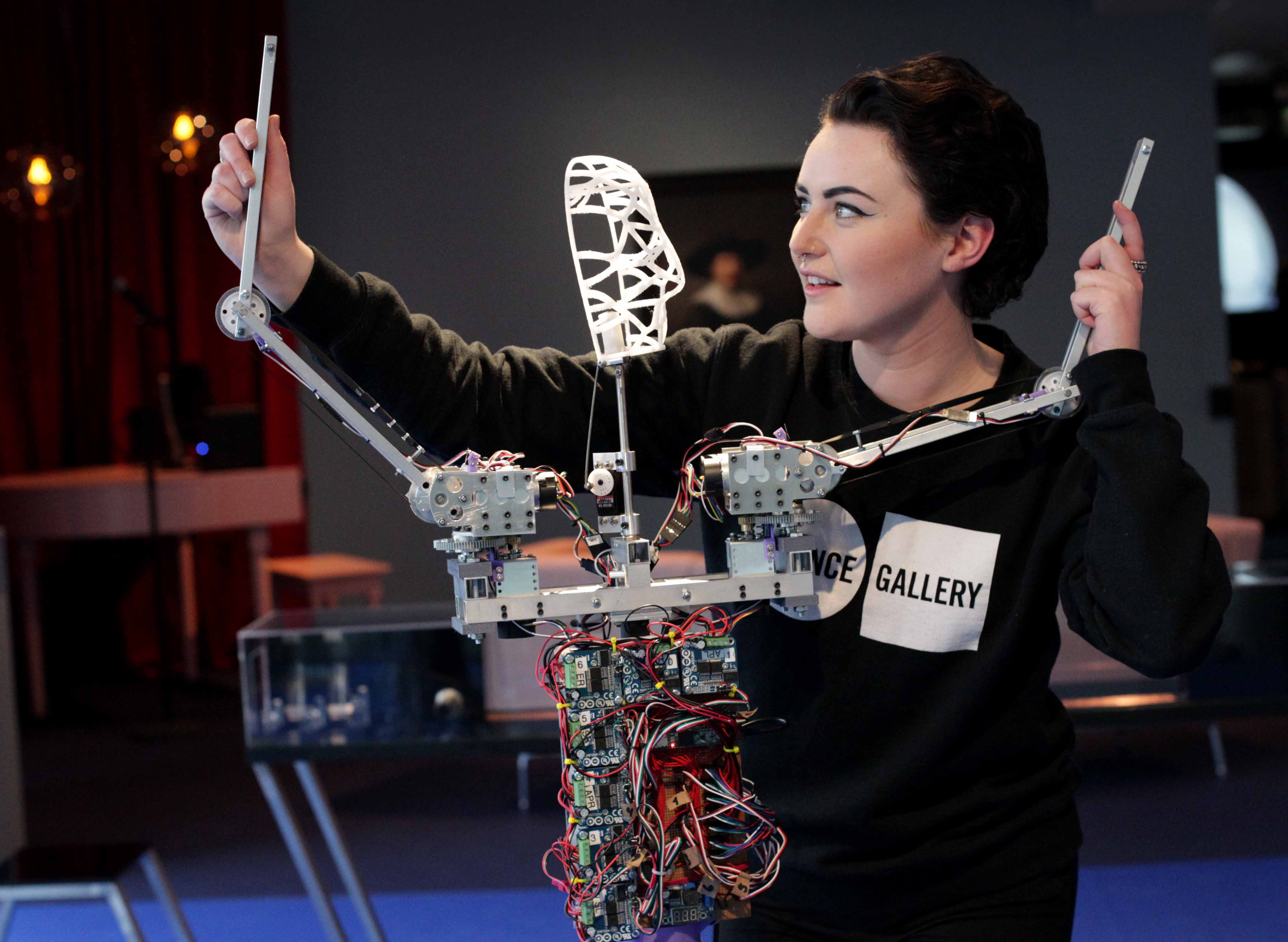
Inspired by the great changes that artificial intelligence (AI) is thought to impose upon society in coming years, HNNA enables us to explore the possibilities of machine learning in an interactive and creative manner. With each installation, visitors can expect to grapple with an imagined reality of what may come, as the celebratory, beneficial, dystopian and humorous are brought together to create a diverse and exciting exhibition.
Described as an exploration of “computers creating culture, from algorithm-driven artworks to responsive robots and animatronic desk lamps”, each work serves as a catalyst in sparking deeper thought on the varying roles AI should, or perhaps should not, play in society. The exhibition presents many memorable works, including word.camera, an automatic photo narrator by artist and hacker Ross Goodwin, which dispenses short poems based upon the images it captures, replacing the usual photographic output with text instead.
Another highlight is Lady Chatterly’s Tinderbot, an installation which explores love in the post-digital age, building further upon the influence technology already has on the way in which we communicate. This combination of the literary novel and and an app delivers realistic conversations between potential Tinder users and an AI that bases its dialogue purely upon the novel Lady Chatterley’s Lover, providing an intriguing perspective into the contrasting human to non-human relations.
An equally inventive but notably larger installation is that of Tickle Salon. Visitors are welcomed to lie down on a bed where a soft brush, with no prior knowledge of the human body, will then lower down to move across the body of the subject, mapping their shape and adjusting accordingly as it ultimately seeks to create the effect of an automated caress.
Touching upon the more sinister implications of AI, ad infinitum is a thought-provoking and physically engaging installation whereby the notion that humans feed off technology is inverted to bring you a parasitical entity that thrives on human energy. Visitors can attach themselves to a machine which will then persuade the subject to move their muscles, allowing it to harvest human kinetic energy. Darker still, visitors must persuade someone else to take their place should wish to be relieved of this activity.
Other particularly inventive and enjoyable elements of the exhibition include DoppelGänger, a robot capable of mirroring human movement; The Minimum Wage Machine with which you can turn a crank that will dispense one cent every 3.892 seconds in keeping with the current minimum wage of €9.25 an hour; and The Mindfulness Machine, a robot that practices mindful colouring-in as an exploration of a future where machines may require a means to de-stress just as humans do today.
Speaking about the exhibition, Lynn Scarff, Director at Science Gallery Dublin, said “HUMANS NEED NOT APPLY sets out to engage our visitors in genuine conversations that probe the multiple opportunities that [AI and machine learning] present. The exhibition aims to lend urgency to public discourse about what kind of changes we need to consider to our current infrastructure, from education and health to transport and the economy, to ensure that we all benefit from these opportunities.”
HNNA is an exhibition of immense colour and variety, suitable for both those with 20 minutes to spare or an afternoon to give in a bid to discover something new. The insight it provides into a futuristic era is both complex and accessible, and ultimately well worth the visit. For a full list of exhibits, along with the programme of events running throughout the exhibition, visit dublin.sciencegallery.com/hnna






